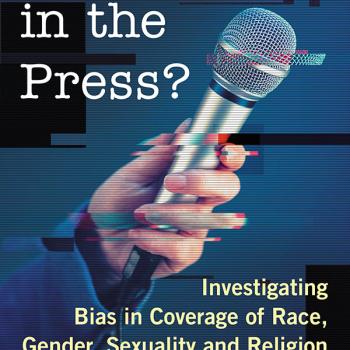A new word has entered our political discourse – fake news. It was the term first used by the Democrats to describe the fabrication of news stories that they believed doomed their candidate. The term has been co-opted by President Trump and the Republicans to denigrate news stories they do not like. So what has happened is now those on the left and on the right are hurling accusations of fake news stories at each other.
There actually are efforts to promulgate untrue news stories. Such stories can rightly be called “fake news.” Individuals are writing stories they know are not true, and those stories are being put out for some political or financial advantage. But most of what has been termed fake news by partisans on both sides of the political spectrum are not obvious attempts to deceive the public. Sometimes writers are sloppy. Sometimes writers are influenced by their own presuppositions. Sometimes writers do not have all of the information. There are many reasons why stories are written in a way to favor certain political viewpoints. An attempt to deceive others is usually not one of those reasons.
Of course in today’s modern blogosphere there are blogs and websites geared towards conservative political interests and those geared towards progressive political interest. We know that articles in Breitbart are going to be conservative and those in Slate are going to be progressive. That is okay. Any observant reader should know the bias of most of these politicized websites. How many times have you used a website in a facebook argument only to have your opponent dismiss the information because of the known political bias of that website? This is because we know the political bias of certain websites, and that knowledge allows us to judge the value of the information we received from them. As such, we should not consider information from these political websites as fake news as few people fail to understand the bias of pulling information from Jezebel or TownHall. People are free to call them fake news but they are really just sources of biased information.
The accusation of fake news becomes more relevant when it is applied to news stories from the major news sources. More specifically, when the charge is applied to almost all of the news outlets, then something is wrong. For example, Trump complains about the lack of coverage of economic good news and says that it is fake news. Perhaps the news media should pay more attention to economic good news, although I would not give the Trump’s administration much credit for positive economic news so soon in his term. But there is no evidence that news media personnel are attempting to craft a narrative to deliberately dismiss the accomplishments of Trump.
Let me be clear that I am not arguing that we do not have an issue of media bias. Indeed I will have a book coming out soon that documents the problem of media bias. But before we can fully understand the issue of media bias, we have to deal with the unhelpful arguments of “fake news.”
There is a natural tendency among us to seek out information that confirms our previous ideas about reality. This is generally called confirmation bias. So when we hear a negative story about a politician we do not like and one about a politician we do like, it is natural for us to accept the former story and reject the latter one. In the past we simply ignored the story we do not like. Now we have a concept we can label to story that brings us discomfort. We can simply say it is fake news created by our enemies so that they can push their propaganda.
Nevertheless, I do not think the mistaken utterances of “fake news” are always benign. Some individuals appear to use the label of fake news to distract us from information that is unpleasant for them and for the cause they fight for. Trump has become quite an expert at this. After his brutal attack on the Morning Joe hosts, he then complained about how “fake news” was distracting others from his worthwhile agenda. Hello? Nobody told him to talk about blood and a face lift. Unfortunately, he is President of the United States and tweeting insults to TV hosts is big news. We must beware of those who want to use attacks about fake news as a way to distract us from their own dishonorable actions.
So we have this new concept known as fake news. I am tired of hearing the term, but I recognize that it is here to stay. However I hope that we can be cautious about labeling anything we do not like as fake news. I hope we can think beyond our political silos to see when people are distracting us with accusations of fake news. By all means we should take into consideration the type of biases that news media personnel may have. Nothing wrong with listening to news with a critical ear. But if we are honest, then usually we are not considering media bias, but rather merely have a desire to ignore the news stories we do not like. With the programming of social media filtering out those news items that do not fit our presuppositions, it becomes all the more important that we do not throw out dissenting views ourselves. So my hope is that you do not stop with merely attacking an unwanted story as fake news but make an extra effort to scrutinize stories that make your political team look good and to honestly consider the possibility that those that do not make your political team look good may be accurate after all.












